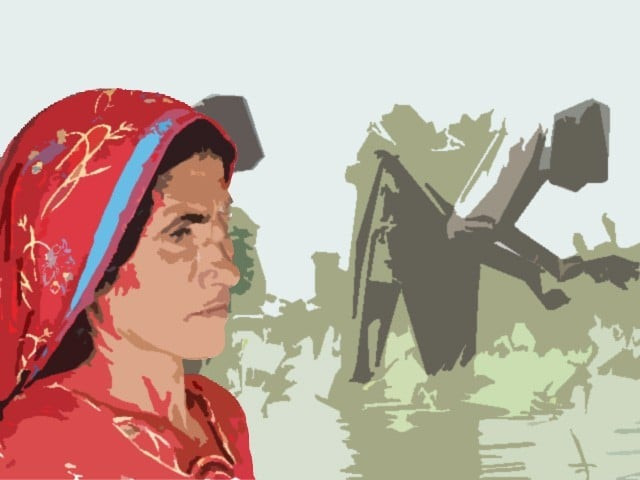The feudal lordship: ‘Land reforms for economic and social development’
Speakers claim feudal lords trying to inhibit progress by depriving peasants of education.

Speakers claim feudal lords trying to inhibit progress by depriving peasants of education. PHOTO: FILE
They were speaking at a seminar, titled “Responding to the Development Deficit in Sindh: A Dialogue on Land and Resource Rights”, organised by the Pakistan Institute of Labour Education and Research (PILER) on Wednesday.
Senior economist and advisor to the Balochistan chief minister, Dr Kaiser Bengali, through his presentation on the pattern of land ownership, revealed that feudalism existed in Sindh and Balochistan in its worst form, while the situation was much better in Southern Punjab and Khyber Pakhtunkhwa. The recent floods had exposed false claims that the wadairas, peers and sardars used to cite in their favour, including the claim that the villagers did not want to leave the land of their ancestors and go to the urban centres, said Dr Bengali. “Feudal landlords don’t want progress. When I was in the Sindh government, I have seen them opposing land reforms sitting right across the table.”

It was revealed during the floods in 2010 that people who had migrated to urban centres did not want to go back to their villages, said Dr Bengali. The feudal lords and influential ministers forced them to go back. Dr Bengali said that feudalism was a system of exploitation where peasants were deprived of basis facilities such as education and health. “There should be no debate on reforming the tenancy system. What we need is to abolish this system once and for all.” He was in favour of nationalising all the land in Sindh and giving it to the people who are directly engaged in farming.
“Floods didn’t make people poor. They actually unearthed the poverty they were living in,” remarked Sadiqa Salahuddin of the Indus Resource Centre (IRC).
Salahuddin said that her organization had worked in a relief camp in Khairpur where it was revealed that out of 195 families, only five had their own land while all other flood-affected people were peasants and working on the lands of the most powerful and influential persons.
“Pakistan is the only country in the world that produces feudal lords every year,” said the executive director of PILER, Karamat Ali. Following the retirement of the Army officers and judges, they are provided with agriculture land and they become a feudal lord, said Ali, giving examples to support his argument.
Ali said that former prime minister, Zulfiqar Ali Bhutto, had introduced land reforms in Pakistan and the then National Assembly had passed the Land Reforms Act in 1977. “In my opinion, one of the reasons of ZA Bhutto’s removal and hanging was the land reforms.”
He advised the Pakistan Peoples Party (PPP) to introduce the Land Reforms Bill in the provincial assembly and implement it accordingly, adding that they should become a party to the Supreme Court’s petition regarding land reforms.
PPP secretary general Taj Haider said that the Land Rights Act was passed by the ‘Wadairas of PPP’ in 1977. He said that his party will not become a party in the case because of the adverse attitude of the apex court towards it.
Published in The Express Tribune, November 8th,2013.



















COMMENTS
Comments are moderated and generally will be posted if they are on-topic and not abusive.
For more information, please see our Comments FAQ